How Breakthrough ACTION Burundi Engages Men and Boys in Family Planning Work
In the past year, Breakthrough ACTION opened an office in Burundi, a landlocked country in East Africa that is densely populated. Many factors have contributed to Burundi’s rapid population growth, including sociocultural barriers steeped in religious beliefs and reinforced by gender norms. According to the latest demographic health survey, the modern contraceptive prevalence among women in union (15–49 years old) is 23%, and 15% for all women of reproductive age.1 The unmet need for family planning (FP) among married women (15–49 years old) is 30% and is 18% for all women of reproductive age (15–49 years old).1 On top of having a significant unmet need for modern contraception, there is a 40% contraceptive discontinuation rate due to side effects, health-related issues, social pressure, and a desire to become pregnant.1
To address the unmet modern contraception need and high discontinuation rate, Breakthrough ACTION is working with the Government of Burundi by focusing on shifting the social, cultural, and gender norms that create barriers for youth and women to access contraception. Recent reporting shows that contraception is a taboo topic at the community and family levels; many women and girls who do use a modern contraception method use it discreetly.2 Additionally, men and boys are often excluded from FP information campaigns, leading many men to believe rumors about modern contraception side effects.2 As the decision makers in their families, these misinformed men then discourage their wives, partners, or daughters from using modern contraception, reinforcing social norms and not allowing women to practice their reproductive choice out of fear of being ostracized.2
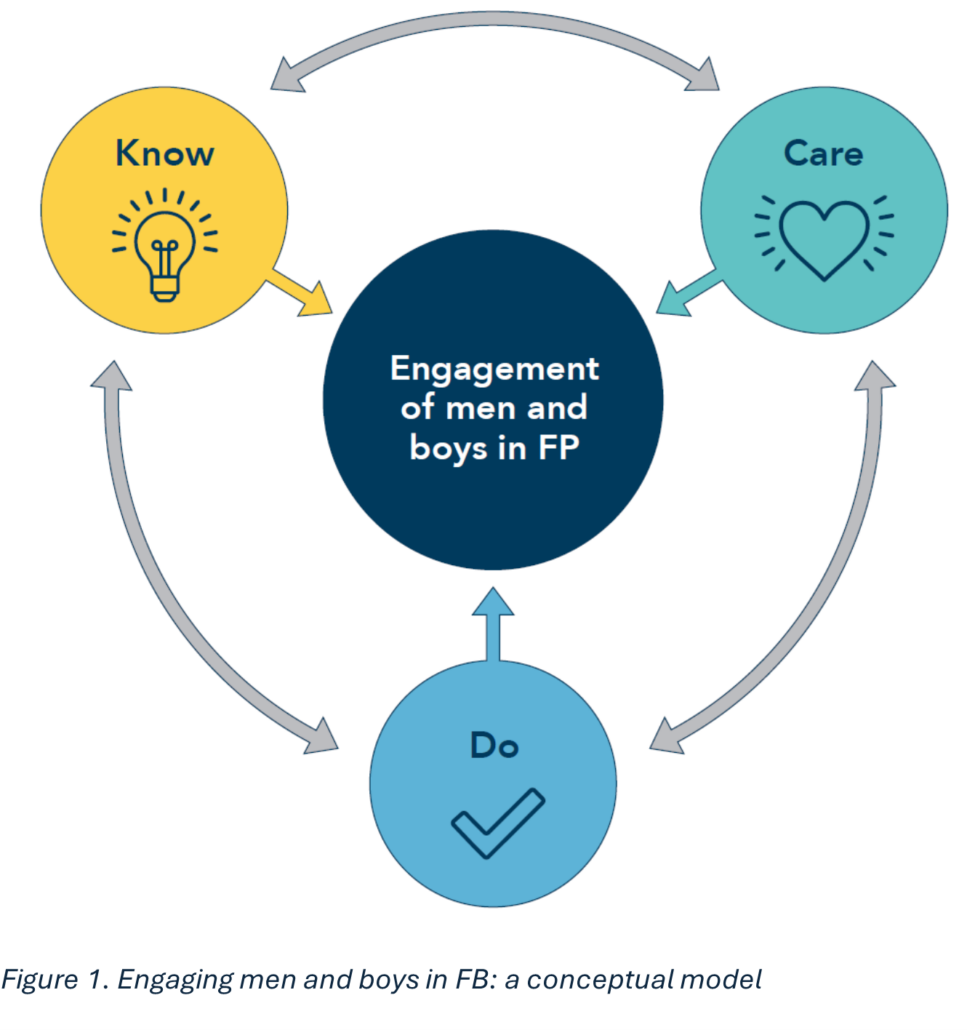
To address these norms, Breakthrough ACTION Burundi started with training the newly hired team on the Know, Care, Do: Theory of Change for Engaging Men and Boys in Family Planning, a tool intended for program implementers working to increase and strengthen the engagement of men and boys in FP programs. By focusing on male engagement, project staff could reflect on the barriers men and boys impose on their partner, sibling, or community member and consider the key drivers or motivators for men to know about, care about, and eventually do FP.3 A eureka moment occurred during the training when a male staff member said, “I never even considered discussing family planning with my male peers,” even though he is a champion for FP and discusses it with his wife, other women, and girls. However, he had never thought to discuss the topic with his male peers. He came into the training already knowing, caring, and doing FP, but he still walked away with a new perspective that he can serve as an agent of social change among his peers and community.
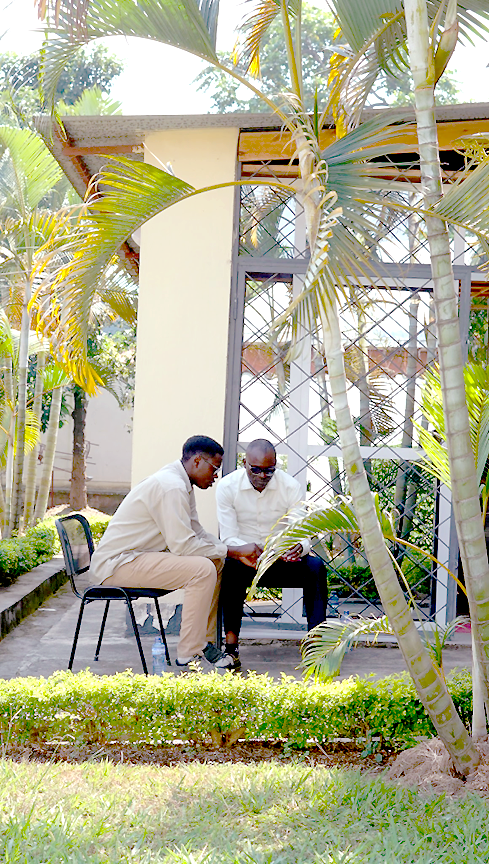
An adolescent boy and a father playing an Empathways prototype in Bujumbura, Burundi. Photo credit: Breakthrough ACTION Burundi
With an established team that had a new emboldened spirit to shift social and gender norms, the Burundi team brainstormed how to adapt pre-existing Breakthrough ACTION tools with a lens to reach men and boys and transform them to become equal partners, clients of sexual and reproductive health (SRH) services, and eventually agents of social change. Currently, Breakthrough ACTION Burundi is adapting the Empathways card deck to facilitate SRH discussions between healthcare providers and parents, both mothers and fathers, to have conversations between one another as well as their adolescent children (15–24 years old) about their reproductive health needs and support their partners and their adolescent children’s reproductive health desires and needs. This latest adaptation allows curious mothers or fathers, who are often discouraged by social and gender norms, to receive accurate information about modern contraception and then have factually informed conversations between themselves and their sons or daughters about relationships, sex, and contraception. Providing safe spaces for both men and women to learn and discuss sexual health and contraception will encourage partners to use more open, effective, and nonviolent communication, allowing them to share their concerns and make a decision together. During the prototyping and testing phase of this version of Empathways, many parents shared they had little knowledge about modern contraception and wanted to have a conversation with their son or daughter but did not know where to start. Breakthrough ACTION Burundi is finalizing this adapted Empathways card deck and working with the Government of Burundi to validate and implement the newly developed version.
Many factors rooted in social and gender norms drive the large gap in unmet modern contraception needs among women of reproductive age in Burundi. Breakthrough ACTION Burundi works to shift deeply rooted social and gender norms by engaging men and boys through their adaptation of an Empathways card deck. The cards guide dialogue between providers and parents, both mothers and fathers, to then have conversations between themselves and with their children about their sexual and reproductive health needs. This is one of many steps program implementers can take to slowly close the gap of unmet contraception needs in Burundi.
Written by: Kendra Davis, Program Officer, Breakthrough ACTION
- Ministère à la Présidence chargé de la Bonne Gouvernance et du Plan Burundi – MPBGP, Ministère de la Santé Publique et de la Lutte contre le Sida Burundi – MSPLS, Institut de Statistiques et d’Études Économiques du Burundi – ISTEEBU, et ICF. (2017). Troisième enquête démographique et de santé au Burundi 2016–2017. ISTEEBU, MSPLS, and ICF. https://dhsprogram.com/pubs/pdf/FR335/FR335.pdf
- Passages project. (2021 April). Exploring social norms around reproductive health affecting unmarried adolescent girls and young women in Burundi. Institute for Reproductive Health and Center for Child and Human Development, Georgetown University. https://www.irh.org/wp-content/uploads/2021/06/Burundi-Passages-Report_FINAL-ENGLISH-May-2021.pdf
- Breakthrough ACTION. (2021). Know, care, do: A theory of change for engaging men and boys in family planning. Johns Hopkins Center for Communication Programs. https://breakthroughactionandresearch.org/resource-library/know-care-do-engaging-men-and-boys-in-fp


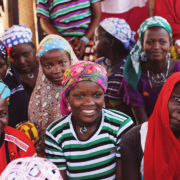 Cambey Mikush/Photoshare
Cambey Mikush/Photoshare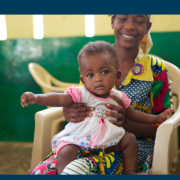 Sara Holbak/VectorWorks/Photoshare
Sara Holbak/VectorWorks/Photoshare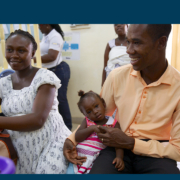 Sarah Hoibak/VectorWorks/Photoshare
Sarah Hoibak/VectorWorks/Photoshare Getty Images/Image of Empowerment
Getty Images/Image of Empowerment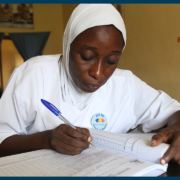 © 2012 CCP/NURHI 2, Courtesy of Photoshare
© 2012 CCP/NURHI 2, Courtesy of Photoshare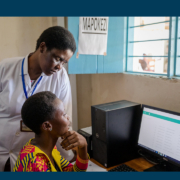 Rachel Chilton/USAID/Flickr
Rachel Chilton/USAID/Flickr